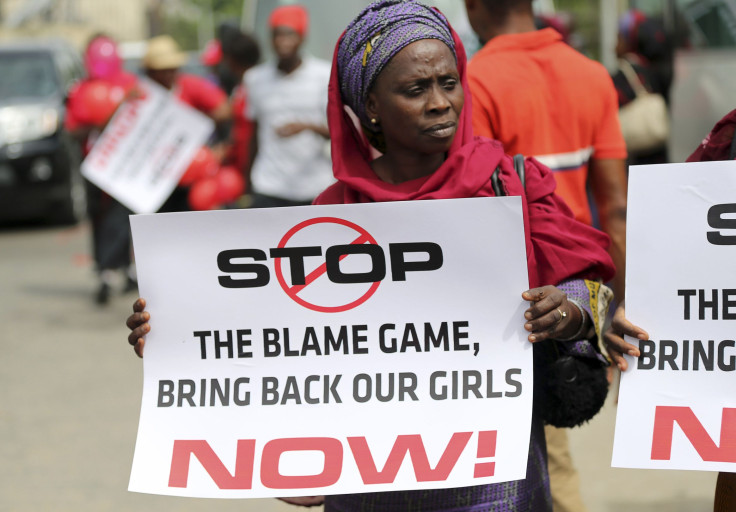US Surveillance Planes Deployed To Find Kidnapped Girls In Nigeria

Manned U.S. surveillance planes began flying missions over remote regions of Nigeria as they help search for more than 276 schoolgirls abducted by Boko Haram in April.
In addition to the surveillance planes, the U.S. is sharing commercial satellite imagery with the Nigerian government, officials said. The latest development is part of a growing international effort to find the missing girls, who were seized from a school in the northeastern town of Chibok on April 15.
"We have shared commercial satellite imagery with the Nigerians and are flying manned ISR (intelligence, surveillance and reconnaissance) assets over Nigeria with the government's permission," a senior administration official, who declined to be named, told the BBC.
A team of about 30 U.S. experts comprised of FBI, defense and state department officials, as well as a British team of experts, have arrived in the country. The two teams are expected to work closely to help the Nigerian government rescue the kidnapped girls.
At a press briefing Monday, White House Press Secretary Jay Carney said the U.S. had experts in a variety of areas, including reconnaissance and surveillance, working on the case.
China and France have made promises to help, and the deputy prime minister of Spain, Soraya Saenz de Santamaria, said that a specialist police team will be made available, if Nigeria approves it.
On Monday, the extremist Islamic militant group released a 27-minute video showing about 130 girls in Muslim attire and reading from the Qur'an. Most of the seized girls are Christians. On Monday evening, a mother of one of the abducted girls reportedly spotted her daughter in the video. She was sitting on the ground and wearing a veil, Dumoma Mpur, parent-teachers association chairman at Government Girls Secondary School in Chibok, northeastern Nigeria, told Reuters.
In the video, Boko Haram leader Abubakar Shekau said the girls can be freed in exchange for prisoners. "I swear to almighty Allah, you will not see them again until you release our brothers that you have captured," he said.
Nigeria’s Interior Minister Abba Moro told the BBC that the government is not prepared to make any kind of exchange for the kidnapped girls.
"As far as this government is concerned, the option of [the] swap of innocent citizens with people who have taken arms against the country ... is not on the table," he said.
© Copyright IBTimes 2024. All rights reserved.












